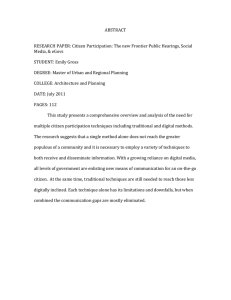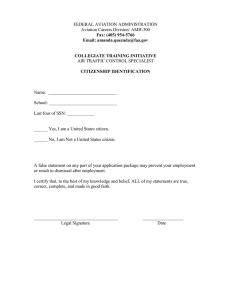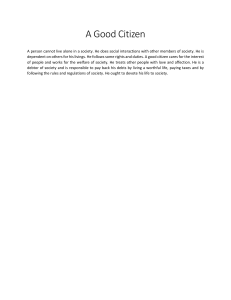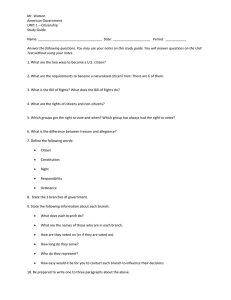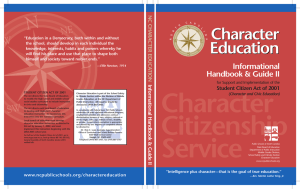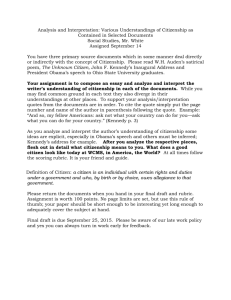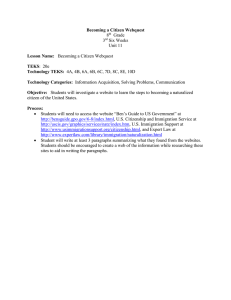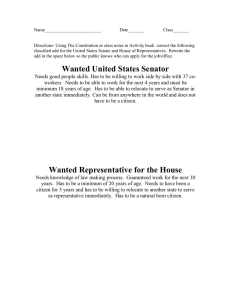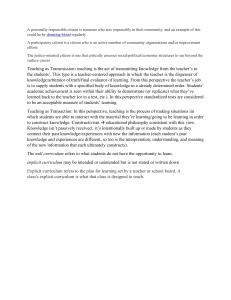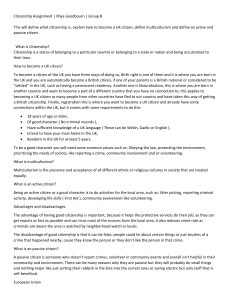Citizenship & Social Roles: Understanding Your Place in Society
advertisement
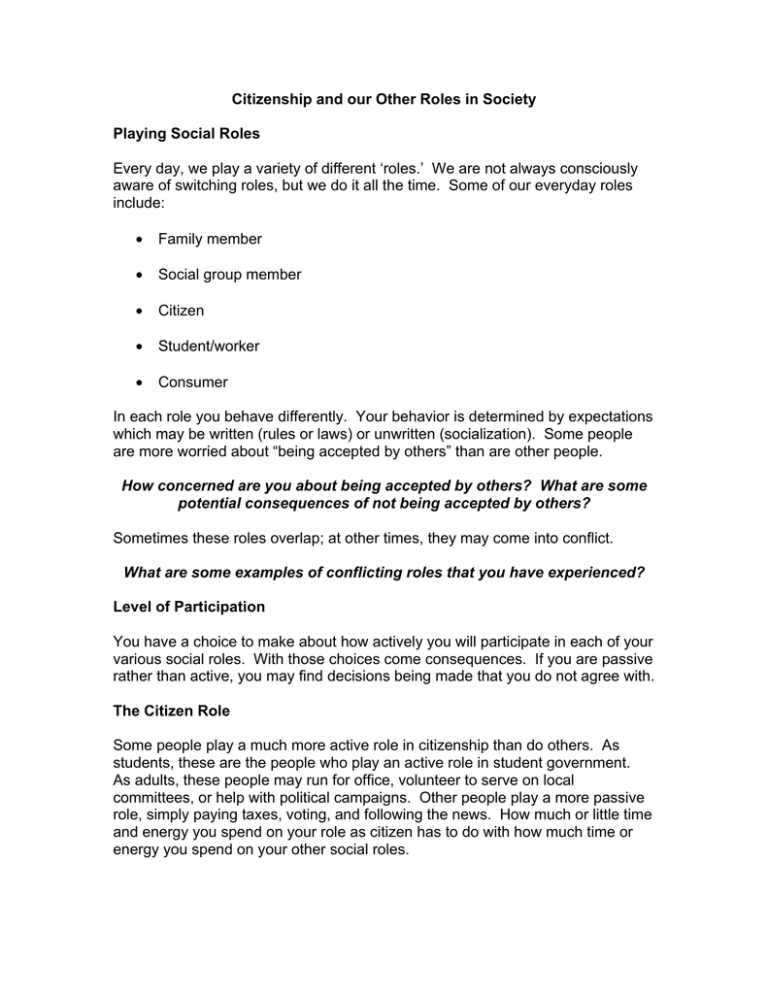
Citizenship and our Other Roles in Society Playing Social Roles Every day, we play a variety of different ‘roles.’ We are not always consciously aware of switching roles, but we do it all the time. Some of our everyday roles include: • Family member • Social group member • Citizen • Student/worker • Consumer In each role you behave differently. Your behavior is determined by expectations which may be written (rules or laws) or unwritten (socialization). Some people are more worried about “being accepted by others” than are other people. How concerned are you about being accepted by others? What are some potential consequences of not being accepted by others? Sometimes these roles overlap; at other times, they may come into conflict. What are some examples of conflicting roles that you have experienced? Level of Participation You have a choice to make about how actively you will participate in each of your various social roles. With those choices come consequences. If you are passive rather than active, you may find decisions being made that you do not agree with. The Citizen Role Some people play a much more active role in citizenship than do others. As students, these are the people who play an active role in student government. As adults, these people may run for office, volunteer to serve on local committees, or help with political campaigns. Other people play a more passive role, simply paying taxes, voting, and following the news. How much or little time and energy you spend on your role as citizen has to do with how much time or energy you spend on your other social roles. Just as in other areas of life, if you choose not to spend much time and energy playing the citizen ‘role,’ you are giving up your right to have a voice and to make a difference in how things happen in your town, state and nation.

